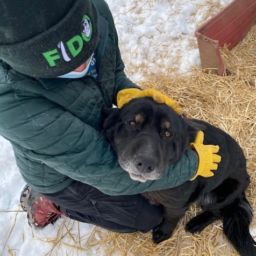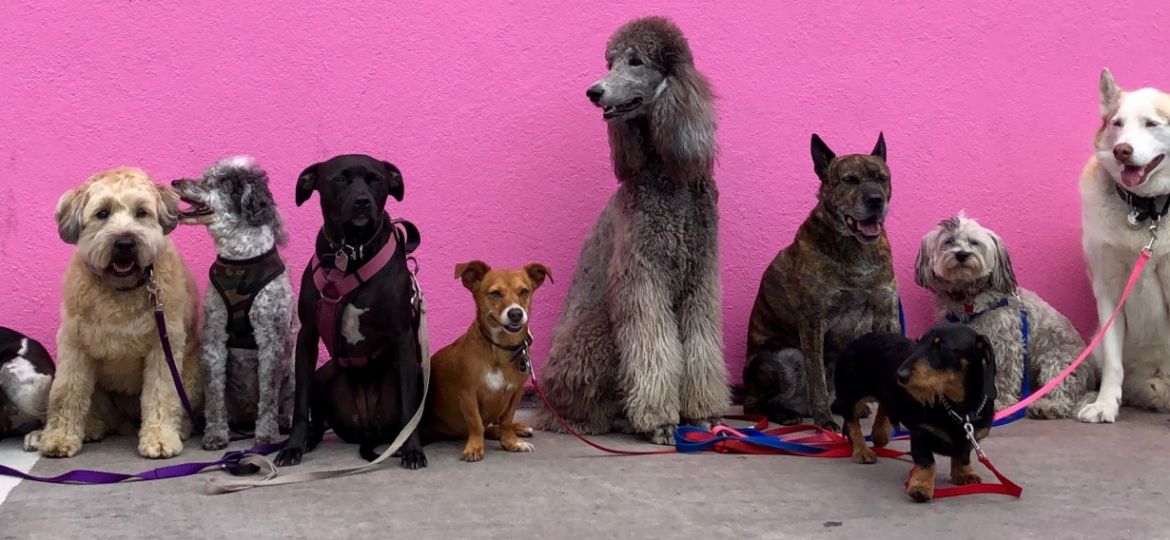
If you’ve ever attended an animal-focused charity event or helped out at a rescue in some capacity, you might have noticed that the majority of the volunteers are, by and large, women. We talked to some locals who are making a giant impact in their communities by dedicating time and resources to our furry friends. And it’s not just the animals who benefit from their efforts.
A story about women and animals in Indiana would seem incomplete without including Rosie Ellis, the founder and Executive Director of Rosie’s Southside Animal Shelter (Ssasi.org). The shelter is a privately run facility—which means no government funding—near Southport that Rosie officially started in 1995 after applying for, and receiving, 501(c)(3) nonprofit status. In 2019 the shelter adopted out over 1,500 animals to new homes, and since 2003, Rosie and her staff have pulled 12,903 dogs and cats from Indianapolis Animal Care Services.
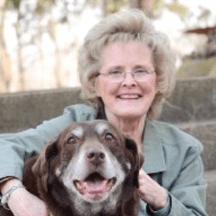 Why does she do it? “I have always loved animals, and in the beginning I just felt like somebody needed to do something,” Rosie says, adding, “I never dreamed that all these years later I would still be doing this. I turned 77 in January, and I feel the same way now about it all as I did when I was younger. I have two sons, but I don’t have any grandchildren, so I consider these pets like my grandchildren. They’re my babies, and I just do the best I can.” (If you feel compelled to aid Rosie with her mission, one fun and easy way is by attending the Southside Animal Shelter’s upcoming Pasta for Pets fundraiser on March 6th.)
Why does she do it? “I have always loved animals, and in the beginning I just felt like somebody needed to do something,” Rosie says, adding, “I never dreamed that all these years later I would still be doing this. I turned 77 in January, and I feel the same way now about it all as I did when I was younger. I have two sons, but I don’t have any grandchildren, so I consider these pets like my grandchildren. They’re my babies, and I just do the best I can.” (If you feel compelled to aid Rosie with her mission, one fun and easy way is by attending the Southside Animal Shelter’s upcoming Pasta for Pets fundraiser on March 6th.)
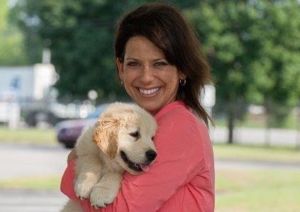
Another amazing Indianapolis-area woman changing lives, both canine and human, is Jillian M. Ashton, President of the Indiana Canine Assistant Network (also known as ICAN; icandog.org.) ICAN is an accredited service dog organization that partners with incarcerated adults in local area correctional facilities to train puppies to become service dogs for Hoosiers with physical or developmental disabilities. The majority of the time the dogs are being trained they live at the prison with their handler, and the impact these dogs have on both the lives of their trainers and their eventual owners is nothing short of life altering.
Ashton has been involved with ICAN from the beginning and has been instrumental in bringing awareness to its mission and core beliefs. “We have a belief that the dog is a conduit for change, whether for the inmate or the individual on the other side of the leash who is living with a disability. The dog does a lot of tasks, but what I really see beyond the tasks is the bridging to a community. The dog can act as a tool to boost confidence. It can change family dynamics and friendships, and can even help people become more confident in their own skin,” Ashton says.
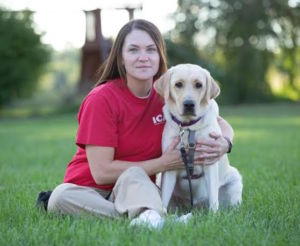
One of ICAN’s skilled dog handlers who currently resides at the Indiana Women’s Prison is named Rheann, and she explains the impact of the program on her life this way: “It is through ICAN that I’ve learned what it entails to be a part of a team and to be responsible for a being other than myself. ICAN has helped to create in me a strong follow through because with service dogs, the proof is in the pudding. I now live more structured and disciplined because I need to provide structure and consistency to the dog. I’ve become more patient because I have to work at the dogs pace for learning, and not my own. This program is a pocket of hope in an environment of sorrow and despair.”
Once a handler has successfully trained for ICAN, they are eligible to receive a certificate for dog training and dog handling, so after they’re released from prison they can pursue a career in those fields if they desire. And Ashton says ICAN hopes to expand their program in the future to provide an avenue for parolees to further their dog training careers. “We are looking at rehiring some of the inmates that have gone back into the community and bring them into a facility where we can provide training services for everyone’s dogs and puppies,” she says.
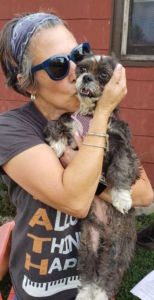 That human-pet connection is also at the core of Robin Clark’s nonprofit rescue Furever We Love. She founded the organization last January with the goal of taking in and providing homes for dogs belonging to elderly owners who are seriously ill, in hospice care, or those who have entered into an assisted living facility where pets are not allowed. She got the idea after taking one of her own dogs to visit an assisted living facility: “After listening to the residents and hearing their stories of how difficult it was to give their pets up, it just made the light bulb go off in my head,” she says.
That human-pet connection is also at the core of Robin Clark’s nonprofit rescue Furever We Love. She founded the organization last January with the goal of taking in and providing homes for dogs belonging to elderly owners who are seriously ill, in hospice care, or those who have entered into an assisted living facility where pets are not allowed. She got the idea after taking one of her own dogs to visit an assisted living facility: “After listening to the residents and hearing their stories of how difficult it was to give their pets up, it just made the light bulb go off in my head,” she says.
So far Clark and her small-but-mighty team have helped save over 80 dogs from being taken to shelters, and she has future plans to expand the scope of the organization: “We hope to open a facility and incorporate the community so we can have adults who are emotionally or developmentally delayed come and help out there, and also invite seniors to spend time and visit.” In the meantime, Clark is always looking for new, dedicated foster homes: “We can only rescue as many dogs as we have fosters for,” she says.
If you’re interested in helping out but fostering isn’t for you, there are other, equally meaningful ways to contribute. 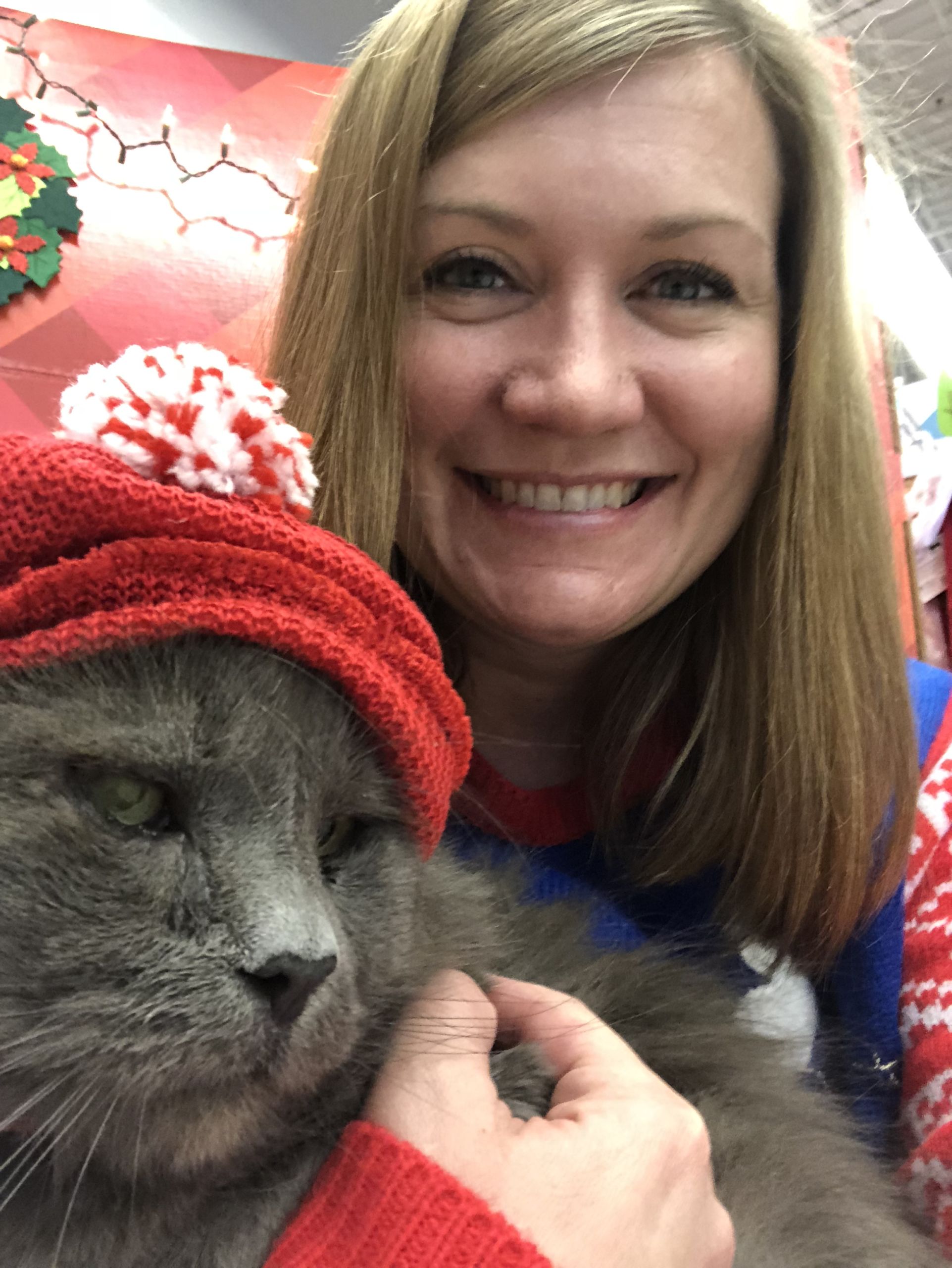 For example, Rachael Waltke of Indianapolis volunteers at the Petco in Broad Ripple once a week visiting with the cats that are up for adoption there from a rescue organization called reTails—and she’s been doing it since 2014. “When I go there, I clean cages and hang out with cats for about an hour,” Waltke says, adding, “I like doing it because it makes me feel like I’m making a tiny difference in a big problem that otherwise I feel powerless about. I can only donate so much money to so many organizations, right? So this is my way of being hands on and helping out. Even on days when I’m tired and just want to go home after work, it never fails to make me feel better after hanging out with the cats.”
For example, Rachael Waltke of Indianapolis volunteers at the Petco in Broad Ripple once a week visiting with the cats that are up for adoption there from a rescue organization called reTails—and she’s been doing it since 2014. “When I go there, I clean cages and hang out with cats for about an hour,” Waltke says, adding, “I like doing it because it makes me feel like I’m making a tiny difference in a big problem that otherwise I feel powerless about. I can only donate so much money to so many organizations, right? So this is my way of being hands on and helping out. Even on days when I’m tired and just want to go home after work, it never fails to make me feel better after hanging out with the cats.”
Jamie Eckstein of Gas City is on the Board of Directors of Naked K9 and Small Dog Rescue, a nonprofit organization that specializes in finding homes for unwanted and abandoned dogs that are primarily hairless breeds like the Chinese Crested and Peruvian Inca Orchid. Chinese Cresteds are the dogs that have stolen Eckstein’s heart, and after doing her research and owning several—“Everyone says you can’t just have one,” she says—she looked for opportunities to get involved saving them.
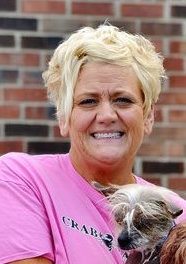 “With five dogs of my own, my husband thought our house was full three dogs ago,” she jokes, so Eckstein started volunteering to drive to pick up animals that were being surrendered. She has since become an all-star in the realm of rescue transport, logging trips from Indiana to New York, Iowa, South Carolina, Alabama and Louisiana. Eckstein has found an invaluable niche, and she suggests that anyone can do the same if they’re willing to think outside the box: “Just because you aren’t able to road trip cross-country or foster, there are still many other ways to get involved, and all of them are important,” she says, adding, “If you do decide to help with a transport, even driving one hour can make a huge difference. If you have great professional skills and can call and check references for potential adopters, or can put together a spreadsheet, that’s valuable. If you can help make crate pads or sew pajamas for our little naked dogs—these things all matter. Rescue is a big puzzle and there are lots of pieces that make it all come together.”
“With five dogs of my own, my husband thought our house was full three dogs ago,” she jokes, so Eckstein started volunteering to drive to pick up animals that were being surrendered. She has since become an all-star in the realm of rescue transport, logging trips from Indiana to New York, Iowa, South Carolina, Alabama and Louisiana. Eckstein has found an invaluable niche, and she suggests that anyone can do the same if they’re willing to think outside the box: “Just because you aren’t able to road trip cross-country or foster, there are still many other ways to get involved, and all of them are important,” she says, adding, “If you do decide to help with a transport, even driving one hour can make a huge difference. If you have great professional skills and can call and check references for potential adopters, or can put together a spreadsheet, that’s valuable. If you can help make crate pads or sew pajamas for our little naked dogs—these things all matter. Rescue is a big puzzle and there are lots of pieces that make it all come together.”
Stephanie Groves is a freelance writer in Indianapolis who enjoys the never-ending ‘discussion’ she has with her husband about how many foster dogs at one time is enough in their house.




